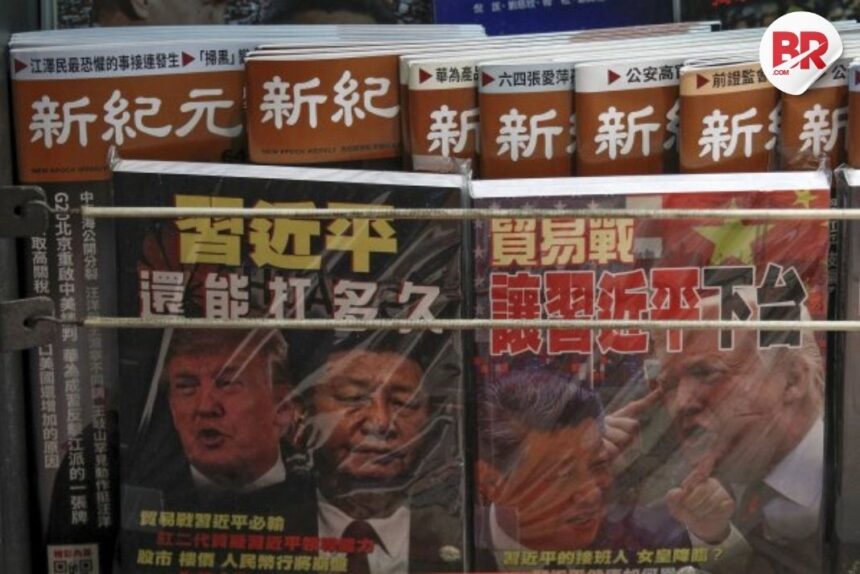
No Winners in a Trade War: Xi Jinping’s Charm Offensive in Vietnam
Chinese President Xi Jinping kicked off his three-nation Southeast Asia tour in Hanoi, Vietnam, with a strong message: “There are no winners in a trade war.” His warning comes at a time when global markets are feeling the effects of trade tensions between the U.S. and China, and Southeast Asian countries are caught in the middle.

Xi’s visit aims to strengthen ties with China’s closest neighbors—Vietnam, Malaysia, and Cambodia—as China seeks to present itself as a reliable partner in contrast to the U.S., which has imposed and then suspended tariffs across the region.
With China’s powerful manufacturing sector and the U.S. market as a key export destination, Southeast Asian nations like Vietnam are increasingly vulnerable to the trade war’s ripple effects.
In a column for Vietnam’s state-run Nhan Dan newspaper, Xi emphasized the importance of preserving the multilateral trading system and stable global supply chains. He further noted that protectionism, including tariff wars, would ultimately lead nowhere. His visit comes at a time when Vietnam is navigating the delicate balance of maintaining good relations with both China and the U.S.
The Economic Impact of the Trade War
The trade war between China and the U.S. has resulted in tariffs that affect both sides. Southeast Asia, an export-driven region, has seen significant changes. Vietnam, for example, was slapped with a hefty 46% tariff on some of its goods destined for the U.S., despite efforts to appeal to the Trump administration. While this tariff has been suspended, its impact is still felt, as it threatens Vietnam’s ambitious economic growth plans.
Xi’s message underscores the negative consequences of this ongoing conflict, highlighting the lack of long-term benefits for any country involved. The tariffs have disrupted trade flows, making it harder for nations to plan for future growth and stability.
Also Read: US-China Trade War Escalates: China’s Bold Retaliation Sends Shockwaves Worldwide
A Reliable Partner
As part of his diplomatic mission, Xi’s visit to Vietnam, Malaysia, and Cambodia is designed to present China as a steady partner. This contrasts sharply with the unpredictability of the U.S. under the Trump administration, which has imposed tariffs without warning, often changing its position suddenly. In comparison, Xi hopes to reassure these countries that China is committed to collaboration and mutual development.
China’s involvement in the region is already substantial, with trade between Vietnam and China growing steadily. The two countries are expected to sign more than 40 agreements across various sectors, including infrastructure projects like developing Vietnam’s railway network.
Vietnam’s Balancing Act
Vietnam’s strategic position in the trade war is particularly challenging. The country depends heavily on both the U.S. for export markets and China for imports of raw materials. This complex interdependence means Vietnam must carefully navigate its relations with both giants. While the U.S. remains Vietnam’s largest export market, China is its biggest source of imports.
The trade surplus between Vietnam and the U.S. has grown significantly in recent years, partly due to companies relocating production from China to Vietnam. In response, Vietnam is cracking down on Chinese goods that are shipped through its ports to the U.S., hoping to mitigate the pressure from Washington.
Also Read: Asian Stocks Surge, But Trump’s Tech Tariff Pause Could Just Be a Temporary Fix
Regional Reactions to the Trade War
Vietnam is not alone in feeling the impact of the U.S.-China trade war. Cambodia and Malaysia also face significant tariffs—49% and 24%, respectively—and both are working to negotiate better terms. Xi Jinping’s visit comes at a time when countries in the region are anxious about the long-term effects of the trade war. For its part, China has vowed to continue fighting against these tariffs if the U.S. escalates the trade war further.
Xi Jinping’s message is clear: trade wars only create losers. His charm offensive in Vietnam and the wider Southeast Asia region is an attempt to shift the narrative away from protectionism and back toward cooperation.
As the U.S. and China continue to clash, Southeast Asian countries like Vietnam must tread carefully, balancing their ties to both economic superpowers.
Also Read: Samsung’s Vietnam Gamble at Risk: Trump’s Tariff War Threatens Tech Giant’s Future












